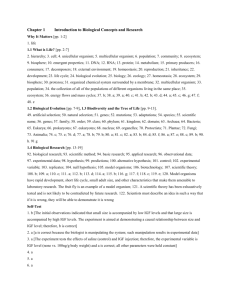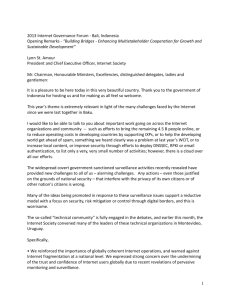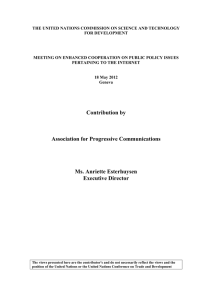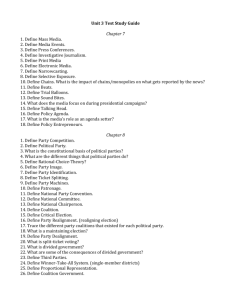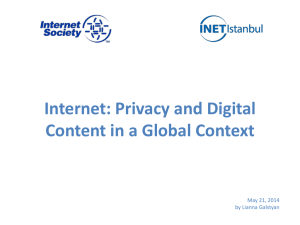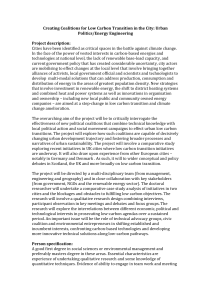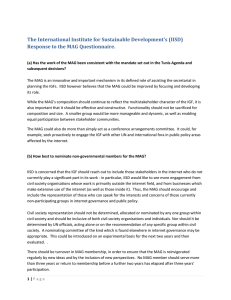DRAFT TERMS OF REFERENCE: DYNAMIC COALITIONS COORDINATION GROUP (DCCG)
advertisement
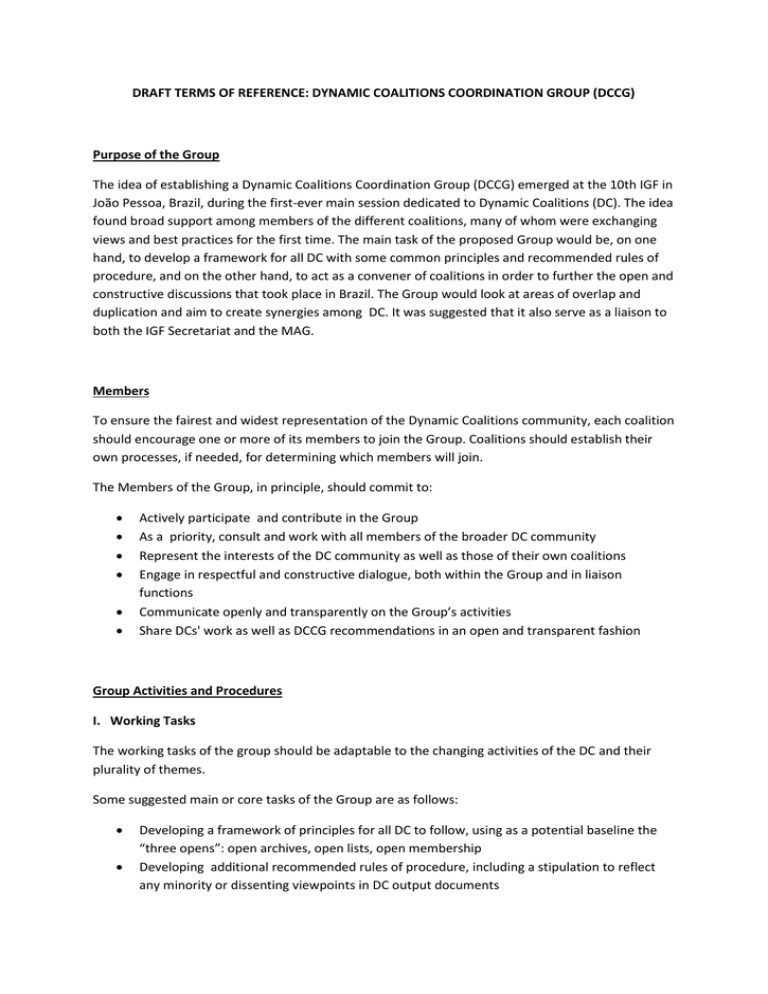
DRAFT TERMS OF REFERENCE: DYNAMIC COALITIONS COORDINATION GROUP (DCCG) Purpose of the Group The idea of establishing a Dynamic Coalitions Coordination Group (DCCG) emerged at the 10th IGF in João Pessoa, Brazil, during the first-ever main session dedicated to Dynamic Coalitions (DC). The idea found broad support among members of the different coalitions, many of whom were exchanging views and best practices for the first time. The main task of the proposed Group would be, on one hand, to develop a framework for all DC with some common principles and recommended rules of procedure, and on the other hand, to act as a convener of coalitions in order to further the open and constructive discussions that took place in Brazil. The Group would look at areas of overlap and duplication and aim to create synergies among DC. It was suggested that it also serve as a liaison to both the IGF Secretariat and the MAG. Members To ensure the fairest and widest representation of the Dynamic Coalitions community, each coalition should encourage one or more of its members to join the Group. Coalitions should establish their own processes, if needed, for determining which members will join. The Members of the Group, in principle, should commit to: Actively participate and contribute in the Group As a priority, consult and work with all members of the broader DC community Represent the interests of the DC community as well as those of their own coalitions Engage in respectful and constructive dialogue, both within the Group and in liaison functions Communicate openly and transparently on the Group’s activities Share DCs' work as well as DCCG recommendations in an open and transparent fashion Group Activities and Procedures I. Working Tasks The working tasks of the group should be adaptable to the changing activities of the DC and their plurality of themes. Some suggested main or core tasks of the Group are as follows: Developing a framework of principles for all DC to follow, using as a potential baseline the “three opens”: open archives, open lists, open membership Developing additional recommended rules of procedure, including a stipulation to reflect any minority or dissenting viewpoints in DC output documents Acting as a liaison to the IGF Secretariat and the MAG, including at face-to-face and virtual MAG meetings throughout the year With the support of the IGF Secretariat, convening virtual meetings of all dynamic coalitions to discuss issues of common interest Facilitating communication and taking a leading role in activities, inputs and outputs involving all DCs Taking a leading role or nominating a suitable candidate to participate in any future main sessions devoted to dynamic coalitions at the IGF annual meeting Facilitating collaboration between DC on topics of shared interest and issues Reviewing DC outcomes and thoughtfully examine whether and how the work of DC meets the relevant recommendations of the CSTD Working Group on Improvements to the IGF, and propose ways of enhancing DCs' work if necessary Sharing recommendations with regard to the DC work with the IGF Secretariat and the MAG as well as to the entire IGF community Sharing best practices with each other in organisational aspects and work of their DC II. Meeting Procedures The DC Coordination Group may opt to hold its meetings under the ‘Chatham House rule’, as the MAG traditionally does. In the same spirit, its discussions should be open to all observation and participation by interested outside parties. The meetings would be virtual and held as needed, with all dynamic coalitions typically meeting face-to-face once a year during the annual IGF. The DC Coordination Group should use the DCAD Accessibility Guidelines for all meetings and aim to use captioning technologies to the extent possible at all meetings, be they conferenced telephone calls, remote and virtual meetings using conferencing tools and or physical meetings, so that persons with disabilities can follow and participate in the meetings. If and whenever possible, the coordination group should strive to find opportunities to hold face-toface meetings, notably during the regular biannual or triannual meetings of the MAG.
